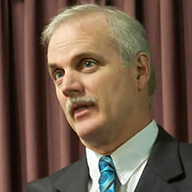 |
|
| Volume 22 Number 3 March 2020 | Page 4 |
Gary C. Hampton
 God sent Aaron to meet Moses in the wilderness as promised. Moses told him everything that had transpired at the burning bush. Aaron related everything to the elders of Israel, including all God said and the signs given. The elders believed God remembered them and sent Moses as a deliverer (Exodus 4:27-31).
God sent Aaron to meet Moses in the wilderness as promised. Moses told him everything that had transpired at the burning bush. Aaron related everything to the elders of Israel, including all God said and the signs given. The elders believed God remembered them and sent Moses as a deliverer (Exodus 4:27-31).
Moses and Aaron went to Pharaoh, telling him God said, “Let My people go, that they may hold a feast to Me in the wilderness.” The request was reasonable. “Every nation presented sacrifices to its deities, and celebrated festivals in their honour, and that they had all their own modes of worship, which were supposed to be appointed by the gods themselves, so that a god could not be worshipped acceptably in every place” (Keil and Delitzsch).
Pharaoh showed total lack of respect for God by saying he did not know Him. Moses and Aaron said the God of the Hebrews met with them and told them to sacrifice to Him in the wilderness. Sacrificing in the wilderness was necessary since they would be sacrificing some of the very animals the Egyptians worshiped. They desired to follow God’s instructions lest they be struck with a terrible disease or a war, either of which would have posed a threat to the Egyptians. Pharaoh accused Moses and Aaron of being troublemakers, trying to lighten the workload of the Israelites.
Pharaoh responded by requiring the Israelites to get their own straw for the bricks while producing the same number as before. The taskmasters hurried the Hebrews and beat their officers, who, in turn, went crying to Pharaoh to ask why they were being treated in such a manner. He said they were idle, pointing to their request to go sacrifice as proof. The officers of the Israelites told Moses and Aaron that they were responsible for making them be a stench in the nostrils of Pharaoh and his men, even putting the sword in their hands to kill all the people (Exodus 5:1-21).
Do we ever resist Pharaoh? Are our hearts hardened so that we will not heed God’s message? Pharaoh paid a high price for having it his way.![]()
Works Cited
Keil, C.F. and F. Delitzsch. “Exodus 5:1-2.” Commentary on the Old Testament, 10 Volumes. New Updated Edition. Translated by James Martin. Peabody: Hendrickson, 1996.
[Editor’s Note: The children of God throughout the biblical record and through the present often experience the challenge of making the choice to heed God’s directives while facing the ire of people among whom we live and the rulers, too (John 15:19; 1 John 3:13). Often, though, Christians today don’t seem to face much of a challenge the more they conform to the world around them (Romans 12:1-2; 1 John 2:15-17). Contrariwise, “Yes, and all who desire to live godly in Christ Jesus will suffer persecution” (2 Timothy 3:12 NKJV). ~ Louis Rushmore, Editor]
What Do Hurricanes Teach Us?
Brian Kenyon
As with any natural event, hurricanes teach us at least three valuable lessons.
We Do Not Know Everything
about God and the World
 In Job 38:1, “the LORD answered Job out of the whirlwind, and said…” In the context of Job, it was very fitting for the Lord to answer him from a storm. Exactly what kind of storm the “whirlwind” describes is uncertain. It could have been a tornado, thunderstorm or a specially designed storm. However, one thing is clear: Job did not know everything he thought he knew about God and this world. The Book of Job opens with God allowing Satan to take away Job’s material possessions (including his children, Job 1:12-22). Then, this prosperous patriarch’s health was ruthlessly taken away (Job 2:6-10). We know that God allowed this not because He was punishing Job, but to the contrary, because He was proving to Satan that Job was righteous (Job 1:1, 8; 2:3) and that he did not “fear God for nothing” (Job 1:9-11; 2:4-5).
In Job 38:1, “the LORD answered Job out of the whirlwind, and said…” In the context of Job, it was very fitting for the Lord to answer him from a storm. Exactly what kind of storm the “whirlwind” describes is uncertain. It could have been a tornado, thunderstorm or a specially designed storm. However, one thing is clear: Job did not know everything he thought he knew about God and this world. The Book of Job opens with God allowing Satan to take away Job’s material possessions (including his children, Job 1:12-22). Then, this prosperous patriarch’s health was ruthlessly taken away (Job 2:6-10). We know that God allowed this not because He was punishing Job, but to the contrary, because He was proving to Satan that Job was righteous (Job 1:1, 8; 2:3) and that he did not “fear God for nothing” (Job 1:9-11; 2:4-5).
Job and his three friends, however, were not privileged to the knowledge we have from Chapters 1-2. Thus, the main portion of the Book of Job concerns the principle human characters trying to figure out Job’s situation. In their minds, sin is what always caused pain and suffering. Since Job suffered so much, he must have committed grievous sin. Job, however, knew that he had not sinned to the degree that he deserved the kind of suffering he was enduring. We know that our sin is not the cause of all our suffering (Luke 13:1-5; John 9:1-3), but Job and his friends were philosophically entrenched with that idea. Throughout the middle portion of the book, Job tried to justify himself at God’s expense, even to the point of seemingly accusing God (Job 19:6-13). Job’s three friends tried to justify God at Job’s expense, even to the point of naming the sins Job must have committed (Job 22:5-9). Each side thought it knew God and the workings of this world, but each came to the realization that it neither knew God nor this world like they thought.
The “whirlwind” was a very appropriate place from which the Lord spoke. Storms, especially tornadoes, are among the most unpredictable of nature. Through this “whirlwind” the Lord asked Job a series of questions, each of which showed that Job did not quite know everything he thought he knew. Likewise, with the hurricanes that plague us from time to time, they show us that we do not know everything we think we know. We are extremely blessed to have the technology whereby we can know that a hurricane is coming and thus prepare for it. However, even with this technology, we do not know everything we think we know. In 2004, Hurricane Charley turned unexpectedly and caught many unprepared. Only the Lord knows the path of a hurricane! Storms teach us that we do not know everything we may think we know.
God Is All-Powerful
In the first Gospel record, we read of this incident in the life of Jesus:
Now when He got into a boat, His disciples followed Him. And suddenly a great tempest arose on the sea, so that the boat was covered with the waves. But He was asleep. Then His disciples came to Him and awoke Him, saying, “Lord, save us! We are perishing!” But He said to them, “Why are you fearful, O you of little faith?” Then He arose and rebuked the winds and the sea, and there was a great calm. So the men marveled, saying, “Who can this be, that even the winds and the sea obey Him?” (Matthew 8:23-27)
As powerful as a storm is, God is more powerful. Those of us who “rode out” hurricanes in the past, especially those three in a row of 2004, know firsthand the power of the wind and rain often associated with these storms. We could see and feel the power, and we were totally powerless to do anything about it except run for cover and trust in the Lord! We do not know the exact intensity of the storm Jesus and His disciples encountered on the Sea of Galilee, but we do know that Jesus had power over it.
Two truths come to mind from this incident. First, we must never fail to trust in the Lord, even in the severest of storms. Jesus’ response, “O you of little faith,” was a response that He only directed to His disciples (other occurrences are in Matthew 6:30; 14:31; 16:8; Luke 12:28). It was a mild rebuke for those who should have known better. Of all people who should not be “fearful,” it should be the Lord’s disciples (Matthew 28:20; Hebrews 13:5). How sad it is when we fail to trust in the Lord!
Second, God is powerful. Not only is the power of God known through the storm, as in the case of Job, His power is known from this incident by the Lord’s ability to calm the raging storm. Imagine if in the midst of a hurricane—branches flying everywhere, roofs peeling off, rain horizontally slicing the sky—the Lord spoke, and all the fury instantaneously turned to calm. That would be some power! Our reaction would be like those on the boat with Jesus, “Who can this be, that even the winds and the sea obey Him!” Although God’s will today does not include miraculously calming storms (1 Corinthians 13:8-13), the Biblical record is true, and it lets us know that God is all-powerful.
Trust in the Lord
Future hurricanes may spare us their furry or our material possessions may be devastated. However, since we do not know everything we may think we know about God and this world, and since we know that God is all-powerful, let us trust in Him to see us through. There are least three relevant aspects of this trust. First, trust that God will not allow us more than we can handle (1 Corinthians 10:13). As James wrote, we can and must “count it all joy when you fall into various trials, knowing that the testing of your faith produces patience. But let patience have its perfect work, that you may be perfect and complete, lacking nothing” (James 1:2-4).
Second, trust God’s inspired Word that “we know that all things work together for good to those who love God, to those who are the called according to His purpose” (Romans 8:28). No matter how bad a situation may seem, good can come out of it. Let us use trials as steppingstones to greater faith rather than as stumbling blocks to apostasy! Third, trust that hurricanes, even at their worst, allow us to “Let your light so shine before men, that they may see your good works and glorify your Father in heaven” (Matthew 5:16).
Let us help people mend their lives after the storms of life have devastated. When we help, let us not just meet the physical needs, but let us look toward eternity and point to Jesus, who is “the Christ, the Son of the living God” (Matthew 16:16).![]()